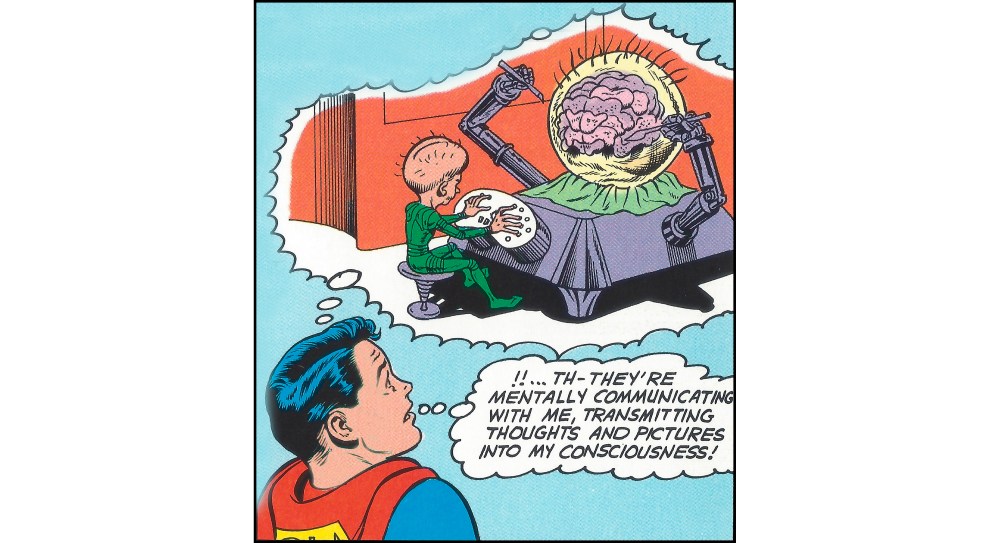
Is this the future of higher education?DC Comics
The New York Times writes today about online higher education:
Coursera, Udacity and edX sprang up nearly a decade ago as high-profile university experiments known as MOOCs, for massive open online courses. They were portrayed as tech-fueled insurgents destined to disrupt the antiquated ways of traditional higher education. But few people completed courses, grappling with the same challenges now facing students forced into distance learning because of the pandemic. Screen fatigue sets in, and attention strays.
The sites even became a punchline among academics: “Remember the MOOCs?”
Online higher education. Let’s suppose we can figure out the magic bullet that makes it work. “The instructional ingredients of success,” says the Times, “include short videos of six minutes or less, interspersed with interactive drills and tests; online forums where students share problems and suggestions; and online mentoring and tutoring.”
Fine. But now game this out. What happens if high-quality online classes become widely available and are accepted as the equivalent of in-person classes? A few things:
- Every existing university will go out of business. They have to support campuses full of buildings and hundreds or thousands or professors. They will be unable to compete with online coursework that can be offered at a tenth of the price.
- Some research universities will disappear. Others will stick around as pure research centers. It’s possible, for example, that online courses won’t be good enough to generate PhDs, so research and graduate education will stick around.
- The star effect will overwhelm online courses. How many Econ 101 classes do you need, after all? Once everything settles down, I’d expect no more than a dozen or so featuring the very best teachers representing a modest range of viewpoints.
- Office hours with these star professors will be a thing of the past. Instead, online courses will offer online Q&A sessions—either one-on-one or group—with teaching assistants at an extra cost.
- Far more classes will be available. Most universities can’t afford to offer every possible class in every possible department. But with millions of students to choose from, it’s quite possible that a class in “Basque Architecture of the Early Renaissance” would generate enough interest to stay on the curriculum.
- There would no longer be any real distinction between 2-year junior colleges and 4-year BA-granting colleges. There would just be classes and certificate requirements. Take the classes needed for an AA, and you get an AA. Take the classes needed to be a dental assistant, and you get a certificate in dental assistantry. Take four years of classes in astrophysics, and you get a BA in astrophysics.
- Accrediting agencies will acquire godlike powers. It will essentially be their job to approve every offering individually as worthy of college credit. They will also need to set out standards for various majors. Someone has to do it, and there’s no real reason that existing universities should have this job. Especially since they’re all going out of business anyway.
- Admission requirements will go away. You just sign up to take classes, and no one is hurt if you drop out before finishing. Nor is there any such thing as a mismatch, where an affirmative action kid can’t handle the coursework at MIT. No matter who you are, you can choose to take whatever level of classes you think you can handle. If you’re wrong, just drop the class and take an easier one.
- But what about classes that require hands-on training: music, drama, labs, and so forth? Well . . . I don’t know. But they’ll be expensive.
- Sports? They’ll probably go the way of the dodo. I suppose that’s where they should go anyway, so count this as a feature, not a bug.
This is just a short list of things that would be likely to happen if online higher education became the norm. Would it work? Is the social aspect of higher education overrated? Or would we find out that people want Harvard to continue existing because they want the prestige of being a Harvard grad, no matter how much it costs? Would in-person via online become the new snooty way of saying you went to college “near Boston”?
For what it’s worth, I think the social aspect of learning is pretty important, and this will push hard against the growth of online education. But that’s a pretty tentative belief.

















